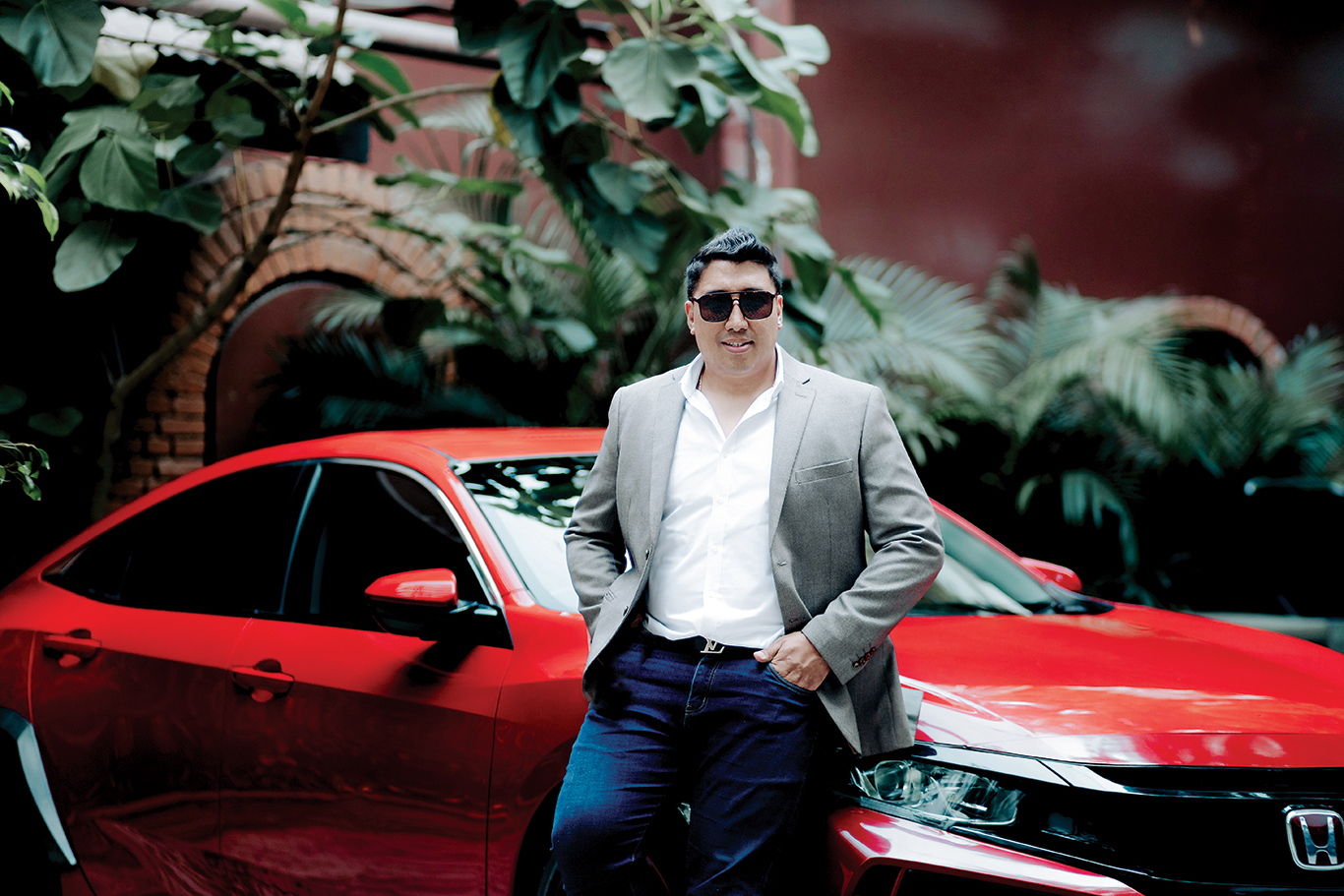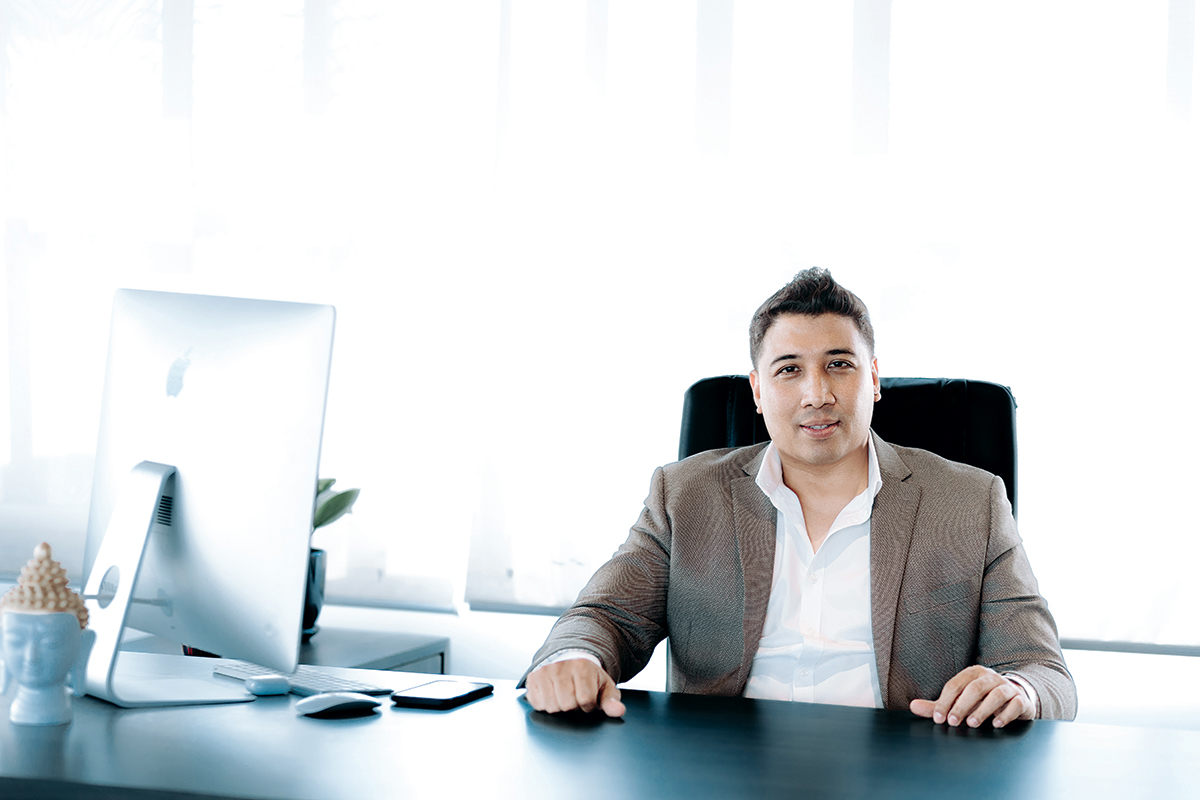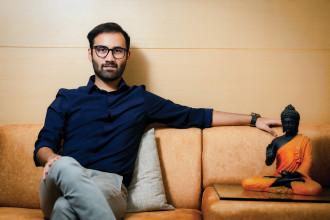
In the dynamic world of hospitality, few stories are as compelling as that of Sovan Bir Malakar, a tested entrepreneur with 14 years of experience in Nepal’s fiercely competitive restaurant industry. From an early start in the garment business to co-owning a popular restaurant that seamlessly blends diverse cuisines and live music, Malakar has shaped his career through hard work, resilience and an unwavering dedication to quality.
His journey in the hospitality business was inspired by a family heritage rich in entrepreneurship, particularly the influence of his father who instilled values of resilience, long-term focus and community involvement. Today, Malakar’s restaurant is not only a thriving business but also a landmark hangout for locals and tourists alike.
Beyond his role as a restaurateur, Malakar has ventured into other businesses including the fitness industry, demonstrating a knack for diversifying his investments while staying true to his vision of community and wellness. His future goals, including expanding the restaurant’s brand and launching a resort that highlights authentic Nepali culture.

In this edition of Business 360, Malakar shares his insights into managing the demands of the hospitality industry, the importance of innovation and customer satisfaction, and the invaluable lessons he has learned along the way.
My father, Surendra Bir Malakar, has been a huge influence. He always emphasised resilience, learning from mistakes, and keeping a strong focus on long-term goals rather than short-term gains.
What led you to open Trisara?
I come from a family with a strong entrepreneurial spirit. I think that played a huge role in shaping my mindset early on. I began in the hospitality industry nearly 14 years ago by starting Trisara and since then it has been an incredible journey. It has not been easy, of course; hospitality is a challenging industry. But there is something so satisfying about creating experiences and spaces where people can come together, relax and make memories. That is what motivates me every day.
Did you always want to run a restaurant, or was there a catalytic point for you that shaped this decision?
That is actually an interesting question. Honestly, I didn’t initially set out to enter the restaurant business. My first experience in business was actually in garments. But I soon realised that Nepal has such a rich cultural and natural landscape, and I thought it would be a good idea to get into tourism and hospitality in any small way that I could. As time passed and as I started gaining more exposure and started learning about the different segments within hospitality, I realised there was a lot of potential in the restaurant industry. Tourism and hospitality are interconnected, and a restaurant can play a big part in a tourist’s experience of a destination. Over time, the idea of owning a restaurant started to grow on me, especially the chance to offer exceptional experiences to both locals and visitors.
Any overlaps from your experience of seven years in the garment business that helped you with the restaurant business?
Absolutely, there is a lot of overlap. For one, the garment business taught me a lot about customer service which is the heart of any business whether you are offering a product or a service. In both fields, you need to make people feel valued. I also gained insights into cultural sensitivity, understanding how different people approach dining and hospitality based on where they come from. It is not just about serving food; it is about creating an atmosphere that people want to return to. In the garment business too as an entrepreneur you need to be aware about the cultural sensitivities of the market that you are catering to. Every region across the world or for that matter even within a country has a different sense of dressing. The garment business helped me understand that at a deep level, and I try to bring that same attention to detail and warmth into the restaurant.
You have often said that your family has been instrumental in shaping your entrepreneurial outlook. Can you tell us a bit more about that?
My father, Surendra Bir Malakar, has been a huge influence. He has been in business himself, primarily in the automobile industry, for many years. Growing up, I watched him navigate challenges, make tough decisions, and balance various responsibilities which I think subconsciously prepared me for a similar path. He always emphasised resilience, learning from mistakes, and keeping a strong focus on long-term goals rather than short-term gains. My father was also involved in various organisations like the Nepal Chamber of Commerce, and seeing him build connections and foster relationships taught me about the importance of community and networking. In fact, my father is a former president of Nepal Chamber of Commerce. The other valuable lesson I learned from my father was balancing personal and work life. I feel this is one of the most delicate situations one can get into when running multiple businesses; he also maintained that no matter how busy you are, you must be able to take out time for your family because at the end of the day it is due to their love and support you are where you are.
Diversifying is also a way to mitigate risk. Hospitality can be unpredictable – tourism seasons, economic shifts, and even global events can have a huge impact. By branching into fitness, I can balance out some of that risk. Our fitness centre isn’t just a gym; we want it to be a community hub where people can focus on their health and wellbeing while socialising.
How do you view the hospitality industry in Nepal?
Nepal’s hospitality sector is growing and I think we all have a role to play in shaping it positively. For example, there is a lot of talk about diversifying tourism and hospitality offerings in Nepal – things like ecotourism, experiential dining, and integrating local culture into hospitality experiences. I feel a sense of duty to help advance these ideas and encourage others in the industry to aim higher. By raising the standards and innovating, we can attract more international tourists and create a sustainable industry that provides long-term employment and benefits for local communities.
Any specific strategies you have implemented to keep your restaurant unique and appealing to guests?
Innovation is definitely essential in this business. For us, it starts with maintaining high quality and consistency. Quality over quantity is our core principle especially in times of economic challenges and inflation where many businesses are tempted to compromise. We have kept our prices steady without sacrificing the quality of ingredients or service. We also focus on creating a memorable ambiance. We offer a blend of live music, different types of cuisine, and a family-friendly environment that appeals to a broad range of people. We want every guest, from young professionals to families, to feel welcome.
There is one incident I would like to share which helped us a lot in terms of indirect marketing of Trisara. We once had former king Gyanendra Shah visit our restaurant and that was a big turning point for us. Previously, we used to have individuals or groups of boys and girls coming to Trisara. However, after the former king’s visit, we started having more families coming to our restaurant. People started recognising our restaurant as a place where families could come and have a good time.

How do you cater to all these different and diverse clients and preferences?
It is a bit of a balancing act. We try to create an environment where everyone can find something they enjoy. We have noticed that people often come in groups with varied tastes, so we offer diverse food options. And live music has been a game-changer for us; it adds energy and draws in a lot of young people. We are also exploring loyalty programmes similar to what big brands like Starbucks have. A loyalty programme could help us connect with customers in a more personal way, rewarding regulars and encouraging more visits.
We are in the pilot stage of the loyalty programme right now but the idea is to create a loyalty card that customers can use across our sister companies and any future branches. Customers would be able to earn points, get discounts and enjoy other perks. In a business like ours, where competition is fierce, fostering customer loyalty can make a huge difference. It is not just about one visit; it is about building a relationship over time, so they feel a connection to our brand. I am excited to see how it unfolds.
You have recently opened Evolve Fitness. What motivated you to diversify into the fitness industry?
The fitness industry is something I have always been interested in, and diversifying is also a way to mitigate risk. Hospitality can be unpredictable – tourism seasons, economic shifts, and even global events can have a huge impact. By branching into fitness, I can balance out some of that risk. Our fitness centre isn’t just a gym; we want it to be a community hub where people can focus on their health and wellbeing while socialising. It is about creating spaces where people can connect and grow, whether that is over a meal or a workout.
Any new projects or expansions in the pipeline?
We have some exciting plans. In addition to expanding our loyalty programme and potentially franchising the restaurant, I am also exploring the idea of opening a resort in Kakani. This has been a long-standing dream. A resort would allow us to offer a full experience, combining relaxation, food and activities in one location. We are still in the planning stages but I think there is a lot of potential in creating something unique, blending luxury with authentic Nepali culture. I would love to attract international tourists and give them a memorable stay.
How do you use social media to impact business?
Social media has been a game-changer, no doubt. Platforms like Instagram and Facebook allow us to reach a massive audience, far beyond what traditional marketing could achieve. It is especially helpful for restaurants since people love to share pictures of their food and dining experiences. We have embraced it as a key part of our marketing strategy. Social media helps us show potential customers what we offer, from the ambiance to the dishes. It is also a great way to engage directly with customers, responding to feedback and building a community.
Any advice to young entrepreneurs who are just starting out?
My advice would be to be patient and stay resilient. It is easy to feel discouraged, especially in the early stages but success does not come overnight. Building something meaningful takes time and effort. I would also say, do not be afraid to take risks but make sure you are prepared for the ups and downs that come with it. Surround yourself with people you trust and do not underestimate the power of networking. Lastly, stay focused on quality. Whatever you are doing, make sure you are giving it your best effort, because people notice.



-1738054013.jpg)
-1735633677.jpg)
